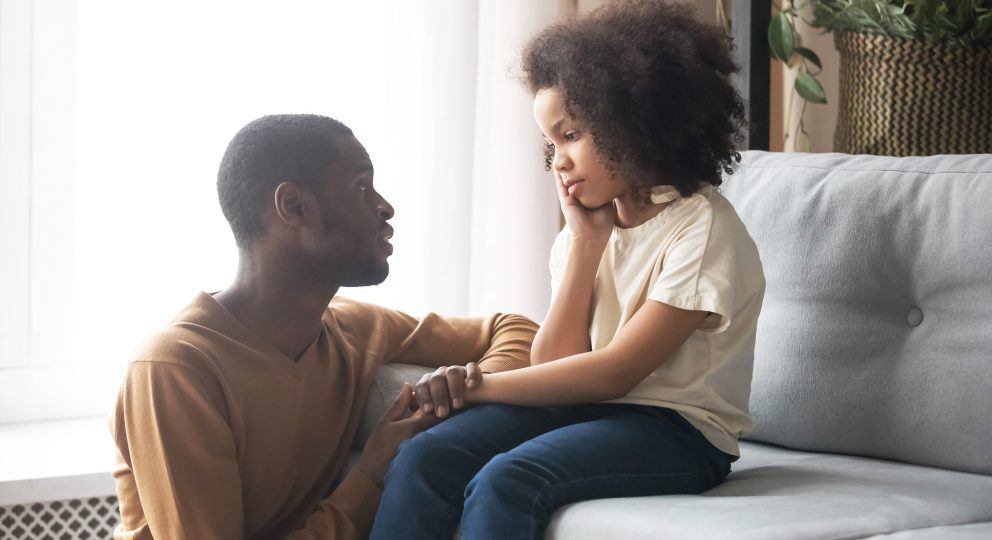As a pediatric psychologist and parent coach, I have been speaking to countless parents, children, teens, and clinicians about the many ways life has changed since March 2020. This year has truly taught people how unpredictable life can be. Now, families are faced with a new school year and more questions. Thoughts such as, “Should my child return to school?”, “What if things continue to get worse?”, “How will I balance work and my child’s schooling?”, “Can I continue to keep my child at home?” The thoughts and questions remain unanswered.
Here are a few tips to consider as we face a new academic year.
1. Have a plan and multiple back-up plans. I have told my therapy clients and parent coaching clients during this time: Being flexible is a skill and a gift. It is great to make plans and outline them on vision boards, color-coded graphs, and planners. However, the individuals who will be most successful will consider other plans if those plans don’t work out as expected. Flexibility can be taught to and modeled for your children, too. They can learn to adapt to changing conditions while watching you. For example, you can say to your children: “We have decided to keep you home from school and enroll you in distance learning. If after the fall semester the pandemic cases are significantly lower and under control, we can consider returning in the spring.” By the way, that’s our plan.
2. Hash out “what if” scenarios. This is another technique that works for me on both on a personal and professional level. What does this sound like and why is this such a great technique? First, let’s tackle why this is such a great technique. Our brain does a fabulous job at preparing us for life events. As we rehearse things in our mind, we prepare our response. This is all done in our imagination at first. So, if we create a “worst-case scenario” intentionally (stay with me here) and think about what can go wrong. Then, on the flip side, think about the “best-case scenario” and think about what can go right, we can begin to allow our brains to prepare for multiple outcomes. Then, we can start planning for situations that can involve a combination of the two. It doesn’t have to be all-bad or all-good, but maybe something that was initially horrific, actually became a growth or learning experience for us.
3. Decide and move forward. So, you have decided to keep your kids home from school for now. Rather than second-guessing yourself, experiencing parent guilt, and obsessively chewing over the decision, feel confident about that decision and move. Weigh the pros and cons and then just move. Procrastination and self-doubt about making a poor choice will only cause significant stress. Begin planning things you will need for their education. Reach out to your child’s school principal and teachers. Are they willing to help you obtain the textbooks needed to have as resources for this new academic year? Are you able to find a high school student, college student, or teacher who would like to join your community to help teach or tutor your child while they are distance learning? Can you form a co-op of fellow parents and students who are also distance learning? What’s the best schedule for yourself and your children that will provide an optimal learning environment? What materials and supplies do you need? Now, plan it out and take each step. But, move forward.
4. Plan for special time. Whether your child stays home or returns to school, it is important that you create intentional blocks of time to connect with your child. This can be done through 15 minutes of child-centered play (playing a game they enjoy, building with blocks, etc.), reading together, going for a walk, or making a new meal together. If the 3 to 5 months of quarantine has taught my family anything, it is the gift of slowing down, simplifying, and making meaningful connections. We have had a ton of connection! As our lives turn to children returning to school, whether live or virtually, let’s not forget to remain connected in meaningful ways. Although this time is tough for parents, it is tough for children as well. Life is not the same and it is important to acknowledge that.
5. Process your child’s thoughts and feelings. As you already know, everyone experiences a variety of thoughts and feelings about events. That is obvious. What may not be as obvious is that children don’t always fully understand their thoughts and feelings when conflicting ones occur all at once. For example, when they experience joy about school being canceled, but feel disappointed about not being able to see their friends, they will likely feel confused about how to navigate these mixed emotions. As their parents, you can help them identify and label these feelings. You can say, “You are super excited school is closed, but you are also super bummed you can’t see your friends yet. You’re feeling ambivalent about what’s happening. Feeling ambivalent means you have two completely different emotions about the same thing at the same time. You know, that’s a lot of people’s experiences right now.” What you have given your child is: feeling heard, empathy, validation, and normalization of their reactions and feelings. What a gift that is!
Okay. You made it. You are prepared for the new unpredictable, uncertain school year. Not really, but now you have a few more tools on your shelf to use as you prepare for some important decisions. Please know that you have a community out there. There are people who want to come alongside you. Don’t do this alone.










